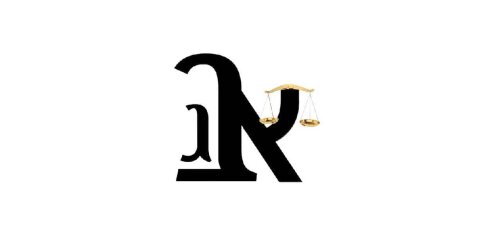Best Defamation Lawyers in Jerusalem
Share your needs with us, get contacted by law firms.
Free. Takes 2 min.
List of the best lawyers in Jerusalem, Israel
About Defamation Law in Jerusalem, Israel
Defamation in Jerusalem, Israel, is governed by a combination of Israeli civil law and criminal law. Defamation includes any statement that can harm the reputation of an individual or an entity. In Israel, defamation can be faced with both criminal charges and civil lawsuits. It entails statements made orally (slander) or in written form (libel). The law strives to balance the protection of an individual's reputation with the right to freedom of expression.
Why You May Need a Lawyer
People often require legal assistance for defamation issues for several reasons:
- If you believe that someone has made a false statement that negatively affects your reputation, you may want legal help to seek damages or public correction.
- Conversely, if you are accused of making defamatory statements, you will need legal assistance to defend your case and potentially mitigate penalties.
- Legal experts can provide valuable guidance in navigating the complex legal landscape, including understanding your rights and the possible outcomes.
- A lawyer can also help mediate between parties to resolve defamation disputes without the need for a court trial.
Local Laws Overview
Several key aspects of local laws are particularly relevant to defamation in Jerusalem, Israel:
- The Defamation Law, 1965, governs defamation issues, setting out what constitutes a defamatory act and the penalties involved.
- Defamation is defined broadly and can include any means of communication, such as spoken words, written statements, or digital posts.
- Truth is generally a defense against defamation claims, provided that the statement was not made with malicious intent.
- There are strict limitations on freedom of expression when it comes to defamation, particularly involving public figures and sensitive topics.
- Both compensatory and punitive damages can be awarded in civil courts for defamation claims.
- Criminal defamation can lead to fines and imprisonment under certain circumstances.
Frequently Asked Questions
1. What is considered defamation in Jerusalem, Israel?
Defamation in Jerusalem, Israel, refers to any statement that harms an individual's reputation. Such statements can be oral (slander) or written (libel) and must be proven to be false and damaging.
2. How can I prove that defamation has occurred?
To prove defamation, you must show that a false statement was made about you, that the statement was communicated to a third party, that it caused harm to your reputation, and that the person making the statement did so with a degree of fault.
3. Can I sue for defamation if the statement made against me is true?
No, truth is generally a defense against defamation claims. However, if the statement was made with malicious intent, legal issues may still arise.
4. What kind of damages can I receive from a successful defamation lawsuit?
You can receive both compensatory damages, which cover the actual harm done to your reputation, and punitive damages, which are intended to punish the wrongdoer.
5. Are there any defenses to defamation?
Yes, defenses to defamation include truth, absolute and qualified privilege, fair comment on matters of public interest, and lack of intent to harm.
6. How long do I have to file a defamation lawsuit?
The statute of limitations for filing a defamation lawsuit is generally one year from the date the defamatory statement was made.
7. Can public figures sue for defamation?
Yes, public figures can sue for defamation, but they must prove that the defamatory statement was made with "actual malice" or reckless disregard for the truth.
8. How can a lawyer help me in a defamation case?
A lawyer can provide legal advice, draft documents, represent you in court, and help negotiate settlements. They can also assess the strength of your case and help you understand your legal options.
9. Can I resolve a defamation issue without going to court?
Yes, many defamation issues are resolved through mediation or out-of-court settlements. A lawyer can assist in negotiating these settlements and ensuring your rights are protected.
10. What are the potential criminal penalties for defamation in Israel?
Criminal penalties for defamation may include fines and imprisonment, particularly if the defamation was intended to cause damage or distress.
Additional Resources
For further information and resources regarding defamation in Jerusalem, Israel, consider reaching out to the following:
- Israel Bar Association - Offers a directory of practicing lawyers and resources.
- The Ministry of Justice - Provides information on legal rights and ongoing cases.
- Local legal aid clinics and non-profit organizations - Sometimes offer free legal advice and support.
- Online legal resources and forums - Can provide general information and community support.
Next Steps
If you need legal assistance in defamation:
- Identify the nature of your defamation case and gather all relevant evidence, such as communications, witness statements, and records of harm caused.
- Consider consulting with a lawyer who specializes in defamation law to assess your case and discuss legal strategies.
- Contact the Israel Bar Association or local legal aid organizations for recommendations on qualified lawyers.
- Prepare for initial consultations by organizing your questions and potential goals for resolving the issue.
- Follow the legal advice provided to pursue your case, whether that means filing a lawsuit, negotiating a settlement, or seeking other remedies.
Lawzana helps you find the best lawyers and law firms in Jerusalem through a curated and pre-screened list of qualified legal professionals. Our platform offers rankings and detailed profiles of attorneys and law firms, allowing you to compare based on practice areas, including Defamation, experience, and client feedback.
Each profile includes a description of the firm's areas of practice, client reviews, team members and partners, year of establishment, spoken languages, office locations, contact information, social media presence, and any published articles or resources. Most firms on our platform speak English and are experienced in both local and international legal matters.
Get a quote from top-rated law firms in Jerusalem, Israel — quickly, securely, and without unnecessary hassle.
Disclaimer:
The information provided on this page is for general informational purposes only and does not constitute legal advice. While we strive to ensure the accuracy and relevance of the content, legal information may change over time, and interpretations of the law can vary. You should always consult with a qualified legal professional for advice specific to your situation.
We disclaim all liability for actions taken or not taken based on the content of this page. If you believe any information is incorrect or outdated, please contact us, and we will review and update it where appropriate.















